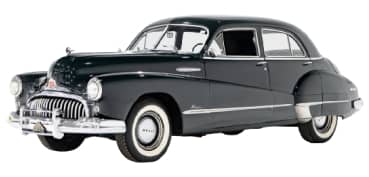The 1960s is often regarded as a golden era for cars, embodying an exciting period of innovation and style in the automotive industry.
Several factors contributed to making this decade stand out in the history of automobiles.
Technological advancements in car models revolutionized the way vehicles were designed and manufactured during this period. The impact of popular culture on car design led to the creation of iconic and timeless models that are still celebrated today.
Additionally, the influence of car racing on consumer preferences played a significant role in shaping the types of cars that gained popularity in the 1960s.
In this article, we will take a classic ride to explore the notable classic cars that stood out and have continued to be symbols of prestige since the 1960s.
What made the 1960s a golden era for cars?
- Technological advancements in car models: The 1960s witnessed remarkable advancements in automotive technology, with manufacturers introducing new features and innovations to enhance the performance and safety of cars. From high-performance engines to improved fuel efficiency, the technology of the time laid the foundation for modern vehicles.
- Impact of popular culture on car design: Popular culture and trends heavily influenced the design of cars in the 1960s. Sleek lines, bold colors, and unique styling cues became defining characteristics of the era’s automobiles, catering to the preferences of a new generation of drivers looking for more than just transportation.
- Influence of car racing on consumer preferences: The success of cars on the racing circuit directly impacted consumer choices in the 1960s. Winning prestigious races like Le Mans or the Grand Prix not only elevated a car’s status but also boosted its sales, as enthusiasts sought to own the same models that dominated the tracks.
READ ALSO: The Complete Pontiac History – 1926 to 1970
Which car models were the most sought-after in the 1960s?
Ford Mustang: The Iconic American Muscle Car

The Ford Mustang, introduced in 1964, quickly became one of the most popular American cars of the 60s. Combining sporty design with affordable pricing, the Mustang created a new category of vehicles known as “pony cars,” setting a trend that would endure for decades.
The Ford Mustang became an instant classic car and set the standard for pony cars. Its sleek design, powerful engine options, and affordable price made it one of the cars of the decade and a favorite among car enthusiasts and everyday drivers alike.
Aston Martin DB5: The Epitome of British Luxury
The Aston Martin DB5, one of the most expensive cars in the 1960, gained fame for its appearance as James Bond’s car in the film Goldfinger. This luxurious and stylish British sports car captured the imagination of car enthusiasts worldwide, cementing its status as a timeless classic. Its timeless design, luxurious interior, and innovative features made it a status symbol for the elite.
Aston Martin DB5: The Epitome of British Luxury
The Aston Martin DB5, one of the most expensive cars in the 1960, gained fame for its appearance as James Bond’s car in the film Goldfinger. This luxurious and stylish British sports car captured the imagination of car enthusiasts worldwide, cementing its status as a timeless classic. Its timeless design, luxurious interior, and innovative features made it a status symbol for the elite.
Jaguar E-Type: A Classic British Car
The Jaguar E-Type, launched in 1961, is often hailed as one of the most beautiful personal luxury cars ever created. Its combination of performance, elegance, and distinctive design elements elevated it to a status of automotive icon in the 1960s.
Jaguar’s top models in the 1960s, such as the Jaguar XJ6 and Jaguar E-Type, showcased the brand’s commitment to luxury and performance. These beautiful cars featured exquisite craftsmanship, advanced comfort features, and powerful engines, appealing to discerning buyers.
Ferrari 250 GTO: The Legendary Supercar of the 1960s
The Ferrari 250 GTO is often hailed as one of the greatest cars of all time. With its exceptional performance, beautiful design, and limited production numbers, the GTO remains a highly sought-after collector’s item and a symbol of automotive excellence.
Iconic muscle cars like the Pontiac GTO
The Pontiac GTO, introduced in 1964, is often credited as the first true muscle car and played a significant role in popularizing the genre. Winning the car of the year award, its combination of aggressive styling, potent engine options, and accessible pricing made it a best-selling car and a symbol of American performance.
Chevrolet Corvette Stingray: The Quintessential American Sports Car
The Chevrolet Corvette Stingray embodies the spirit of American performance cars in the 1960s. Its sleek lines, powerful engines, and distinctive styling make it a timeless classic that continues to captivate car enthusiasts around the world.
Additionally, according to Motortrend, Chevrolet introduced classic models like the Impala and Camaro in the 1960s, further solidifying its position in the American automotive market as one of the best-selling American production cars of the 60s. These cars combined style, performance, and affordability, attracting a wide range of customers.
Porsche 911: Continuously Evolving Icon of Sports Car Excellence
The Porsche 911, introduced in 1963, has remained a benchmark for sports car excellence for over five decades. Its combination of engineering prowess, racing pedigree, and iconic design elements has solidified its place as one of the most revered models in automotive history.
The Porsche 911 quickly gained a reputation for its performance on the track and became a symbol of German engineering excellence.
To enjoy the maximum excitement that comes with owning one of these desired cars on the planet, consider getting the old car VIN lookup to verify the various unique features and details that made these bestseller powerful cars worth buying.
Since these cars can be very expensive to buy, it’s smart and safe to check the vehicle history to avoid stories that touch like buying a stolen or lien-bound car. When buying a classic, be sure to perform a classic car VIN lookup among other inspections and investigations. Your journey to safety and buying with confidence starts here.
The top features of cars from the 1960s?
- High-performance engines and top speeds: Cars on the market in the 1960s were known for their powerful engines and impressive top speeds, signaling a shift towards a more performance-oriented approach to vehicle manufacturing. Models like the Ferrari 250 GTO set new benchmarks for speed and agility.
- Distinctive designs and iconic styling cues: The 1960s introduced distinctive design elements and styling cues that defined the look of cars from that era. From fins and chrome accents to sleek profiles and aerodynamic shapes, each model carried its unique visual identity.
- Introduction of convertible and luxury models: The 1960s saw the rise of convertible and luxury models that catered to consumers looking for elegance and comfort in their vehicles. Cars like the Chevrolet Corvette Stingray brought a touch of sophistication to the market, appealing to a more affluent clientele.
How did cars from the 1960s influence the modern automotive industry?
- Legacy of iconic models like Pontiac GTO and Ferrari: Iconic cars from the 60s, such as the Pontiac GTO and Ferrari models, left a lasting legacy that continues to shape the automotive industry today. Their influence can be seen in the design, performance, and marketing strategies of contemporary car manufacturers.
- Introduction of innovative technology in 1960s car models: The 60s marked a period of significant technological advancement in the automotive sector. Innovations like disc brakes, fuel injection systems, and advanced suspension setups became standard features in many cars, setting a new standard for safety and performance.
- Shift towards more powerful and stylish mass-produced cars: The demand for powerful and stylish cars in the 60s paved the way for a new generation of mass-produced vehicles that combined performance with aesthetics. Manufacturers like General Motors and Ford capitalized on this trend, introducing models that appealed to a wider audience.
What made the muscle cars of the 60s so popular?
The 60s witnessed the emergence of muscle cars, high-performance vehicles designed for straight-line speed and acceleration. These cars became hugely popular among car enthusiasts, especially in the United States, for several key reasons.
One of the main factors that contributed to the popularity of muscle cars in the 1960s was the availability of powerful engines. Manufacturers like Pontiac, Chevrolet, and Ford developed V8 engines that delivered impressive horsepower and torque, appealing to performance-minded buyers.
How did sports cars evolve in the 1960s?
During the 60s, sports cars underwent significant evolution, influenced by European manufacturers and the growing demand for high-performance vehicles. These cars combined speed, handling, and style, showcasing the best of automotive engineering.
Frequently Asked Questions
What are the Popular cars of the 1960s
Among the popular cars of the 60s were the Ford Mustang, Chevrolet Impala, and Pontiac GTO. These models appealed to a wide range of car buyers with their stylish designs and powerful engines, making them top choices in their respective categories.
What are the Best cars of the 1960s
Some of the best classic cars from the early 1960s include the Ford Mustang, Chevrolet Camaro, and Jaguar E-Type. These vehicles not only showcased cutting-edge technology for their time but also set new standards in performance and comfort.
What are the Popular sports cars in the 60s
Popular sports cars in the world in the 60s included the Jaguar E-Type, Chevrolet Corvette, and Porsche 911. These vehicles combined cutting-edge technology with iconic design elements, delivering thrilling driving experiences for enthusiasts.
What features defined a sports car built between 1960 and 1966
Sports race cars of the 60s were characterized by their lightweight construction, powerful engines, and responsive handling. The emphasis on performance and aerodynamics set them apart from traditional vehicles, making them one of the most famous and favorite among driving enthusiasts.
